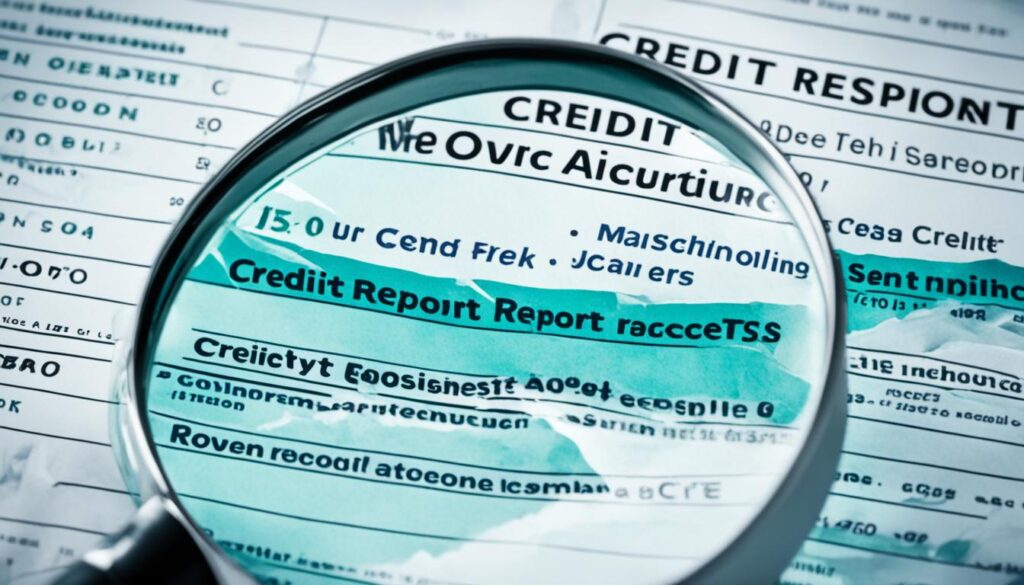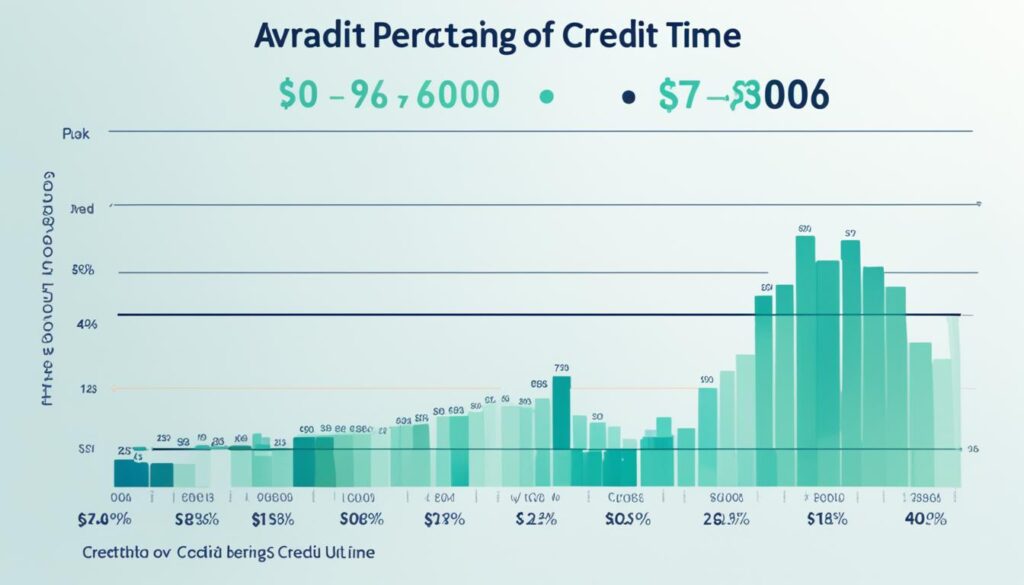Your credit history and scores can significantly impact various aspects of your life, from securing loans to renting an apartment or obtaining favorable insurance rates. Good credit opens doors, while poor credit can make navigating life’s financial challenges more difficult. Fortunately, you don’t have to face these issues alone. This article will provide you with expert guidance on how to get a free credit repair consultation and take control of your financial future.
Key Takeaways
- Your credit history and scores can greatly influence your financial opportunities and daily life.
- Understanding the importance of good credit is crucial for making informed financial decisions.
- You can access your credit reports and scores for free, empowering you to take control of your credit.
- Disputing inaccurate information on your credit reports and creating a debt repayment plan can help improve your scores.
- Seeking professional credit counseling can provide valuable guidance and support in repairing your credit.
Understanding Your Credit Score and Its Importance
Your credit score is a crucial indicator of your financial health. This three-digit number, ranging from 300 to 850, represents your creditworthiness and can have a significant impact on various aspects of your life. Understanding the importance of your credit score is the first step towards building a strong financial foundation.
Your Credit History’s Impact on Your Life
Your credit history is a record of your past borrowing and repayment behavior. Lenders, landlords, and even employers often use this information to evaluate your creditworthiness and make decisions that can affect your financial opportunities. A good credit score can make it easier to qualify for loans, credit cards, and even secure housing or employment, while a poor credit score can limit your options and result in higher interest rates or even application denials.
The Significance of Good Credit
- Obtaining better interest rates on loans and credit cards
- Increasing your chances of approval for mortgage, car, and other financing
- Improving your ability to rent an apartment or house
- Enhancing your eligibility for employment in certain industries
- Reducing the cost of insurance premiums
Maintaining a healthy credit history and credit report is essential for your overall financial health. By understanding the importance of your credit impact, you can take proactive steps to manage your credit utilization and debt, ultimately positioning yourself for greater financial success.
“Your credit score is the gateway to your financial future. It’s a reflection of your creditworthiness and can open or close doors to your financial dreams.”
Accessing Your Credit Reports and Scores for Free
Understanding your current credit standing is a crucial first step in repairing your credit. Fortunately, there are several ways to access your credit reports and scores without incurring any costs.
AnnualCreditReport.com: Your Gateway to Free Credit Reports
By visiting AnnualCreditReport.com, you can obtain your credit reports from the three major credit bureaus – Experian, Equifax, and TransUnion – for free once a year. This website allows you to download and review your credit reports, enabling you to identify any errors or inaccuracies that may be negatively impacting your credit score.
Obtaining Your Credit Score for Free
In addition to accessing your credit reports, there are various ways to obtain your credit score at no cost. Many credit card issuers and personal finance apps now offer free credit monitoring services, allowing you to regularly check your credit score and track your progress as you work to improve your credit report and credit history.
By taking advantage of these free resources, you can gain a comprehensive understanding of your current credit profile and identify areas that need improvement, setting the stage for effective credit repair strategies.
Educational Resources: Empowering Yourself with Credit Knowledge
Gaining a comprehensive understanding of credit, credit repair, and financial management is crucial for taking control of your financial well-being. Fortunately, there are numerous free educational resources available that can help you navigate the complexities of your credit profile, rights as a consumer, and strategies for improving your credit score.
Websites like Credit.com, the Consumer Financial Protection Bureau, and the Federal Trade Commission offer a wealth of information on a wide range of credit-related topics. These resources cover everything from disputing errors on your credit report to managing debt and building a strong credit history.
By empowering yourself with this credit education and financial literacy, you can make informed decisions and take the necessary steps to repair and maintain your credit. Whether you’re looking to improve your credit repair resources, access consumer credit information, or learn about credit counseling services, these educational platforms provide the guidance you need to achieve your financial goals.
“Knowledge is power. The more you know about your credit, the better equipped you’ll be to make informed decisions and take control of your financial future.”

Remember, your credit score is more than just a number – it’s a reflection of your financial behavior and can have a significant impact on your life. By investing time in understanding your credit profile and utilizing the wealth of free educational resources available, you’ll be well on your way to building a stronger, healthier financial foundation.
Disputing Inaccurate Information on Your Credit Reports
Maintaining the accuracy of your credit reports is crucial for achieving and maintaining a healthy credit profile. If you identify any errors, such as incorrect personal information, payment history mistakes, or outdated account statuses, it’s essential to initiate the dispute process with the credit bureaus. The Fair Credit Reporting Act (FCRA) provides you with the right to dispute any inaccurate or incomplete information on your credit reports.
Identifying Errors on Your Credit Report
Carefully review your credit reports from each of the three major credit bureaus – Experian, Equifax, and TransUnion – to identify any credit report errors or credit report inaccuracies. Look for discrepancies in your personal information, account details, payment history, and credit utilization. These credit report disputes can have a significant impact on your overall credit score.
The Dispute Process: Step-by-Step Guide
Once you’ve identified the issues, you can initiate the dispute process by contacting the credit bureaus directly. You can do this through their online portals or by sending a written dispute letter. The credit bureaus are required by the Fair Credit Reporting Act to investigate your dispute and respond within 30 days. If the information cannot be verified, it must be removed from your credit report.
- Gather all relevant documentation, such as payment receipts or account statements, to support your credit report dispute.
- Contact the credit bureaus and provide a detailed explanation of the credit report errors or credit report inaccuracies.
- Follow up with the credit bureaus to ensure your dispute is being investigated and resolved in a timely manner.
- If the information is found to be incorrect, the credit bureaus must remove it from your credit report.
By following the proper dispute process, you can help improve the accuracy of your credit profile and potentially boost your credit score.

“Accurate credit reports are essential for maintaining a healthy financial future. Don’t hesitate to dispute any credit report errors or credit report inaccuracies.
Creating a Debt Repayment Plan
If you’ve exhausted other credit repair options and your credit report information is accurate, the next step may be to focus on paying down your debt. High credit utilization, which measures the amount of available credit you’re using, can significantly impact your credit score. By creating a debt repayment plan and systematically paying down your balances, you can lower your credit utilization and see a positive impact on your credit score over time.
Lowering Credit Utilization for Better Scores
The Consumer Financial Protection Bureau recommends keeping your credit utilization under 30% for the best results. Seeking guidance from a reputable credit counseling service can also help you develop an effective debt management strategy. By taking a proactive approach to financial planning and debt repayment, you can improve your credit utilization and ultimately boost your credit score.
| Credit Utilization Ratio | Impact on Credit Score |
|---|---|
| Below 30% | Positive impact on credit score |
| Above 30% | Negative impact on credit score |
“Keeping your credit utilization under 30% is key for maintaining a healthy credit score.”

Working with a Credit Counselor
If you’re struggling to manage your debt or improve your overall financial situation, collaborating with a certified credit counselor can be tremendously beneficial. Credit counseling organizations provide comprehensive education and guidance on budgeting, bill management, and developing effective strategies to build a healthier financial profile.
These experienced professionals can help you thoroughly understand your credit report, create a personalized debt repayment plan, and connect you with valuable resources to support your credit repair journey. By engaging with a reputable credit counseling service, you can gain the knowledge and tools necessary to take control of your finances and work towards achieving your long-term financial goals.
The Benefits of Professional Credit Counseling
- Receive personalized guidance on budgeting and debt management
- Learn effective strategies for improving your credit score and credit history
- Develop a customized plan to pay off debts and reduce financial stress
- Access financial education resources to enhance your money management skills
- Explore options for credit repair assistance, such as debt consolidation or negotiation with creditors
- Benefit from the expertise and support of certified credit management professionals
“Working with a credit counselor has been a game-changer for me. They helped me understand my credit report, create a manageable payment plan, and provided the resources I needed to take control of my finances.”
By collaborating with a reputable credit counseling service, you can gain the knowledge and tools necessary to navigate your financial challenges and create a brighter, more secure financial future.

Increasing Your Credit Limit: A Temporary Score Boost
If you’re struggling to lower your credit utilization ratio, one strategy you can consider is requesting a credit limit increase from your credit card issuers. By increasing your credit limit, you can temporarily improve your credit score, as long as you don’t use the additional available credit.
However, it’s crucial to remember that this is a temporary solution and doesn’t address the underlying issues that may be affecting your credit. Increasing your credit limit does not solve the problem of high debt levels or poor credit management habits. It’s essential to approach this strategy with caution and have a plan to maintain a healthy credit utilization ratio in the long run.
The Benefits of Increasing Your Credit Limit
When you increase your credit limit, it can have a positive impact on your credit score improvement. This is because your credit utilization, which is the ratio of your total credit card balances to your total credit limits, decreases. A lower credit utilization ratio is generally viewed as a positive factor by credit scoring models, as it suggests that you’re not maxing out your available credit.
Considerations When Requesting a Credit Limit Increase
- Make sure you have a good credit history and standing with the card issuer. They’re more likely to grant a credit limit increase if you’ve been a responsible cardholder.
- Avoid requesting a credit limit increase if you’re planning to apply for new credit in the near future. This can trigger a hard inquiry on your credit report, which may temporarily lower your score.
- Remember that a credit limit increase is not a long-term solution for poor credit management strategies. It’s essential to address the root causes of your credit challenges, such as reducing debt and improving your payment habits.
By understanding the benefits and limitations of increasing your credit limit, you can make an informed decision about whether this strategy aligns with your credit score improvement goals. Always prioritize sustainable credit-building practices over temporary fixes.
| Benefit | Drawback |
|---|---|
| Temporarily decreases your credit utilization ratio | Does not address underlying credit management issues |
| Can lead to a temporary boost in your credit score | May trigger a hard inquiry on your credit report |
| Gives you more available credit to work with | Requires good credit standing with the card issuer |
Free Credit Repair Consultation
Repairing your credit doesn’t have to be a daunting or costly process. Many reputable credit repair services offer free consultations to help you understand your credit situation and explore effective strategies for improving your credit score. These complimentary consultations are an invaluable resource for anyone seeking credit repair assistance.
During a free credit repair consultation, you’ll have the opportunity to work directly with financial advisors and credit experts who can provide personalized guidance. They’ll review your credit history, identify areas for improvement, and walk you through the steps involved in the credit repair process. This allows you to make informed decisions about the best course of action to rebuild your credit without any upfront fees.
Taking advantage of a free credit repair consultation can be a game-changing first step in regaining control of your financial future. Don’t hesitate to explore this valuable resource and get the support you need to achieve your credit goals.
“A free credit repair consultation can be the key to unlocking a brighter financial future. Don’t let credit challenges hold you back – take the first step today.”
| Benefits of a Free Credit Repair Consultation | What to Expect |
|---|---|
|
|
Trusted Credit Repair Services
While it’s possible to repair your credit on your own, some individuals may choose to work with a professional credit repair service. However, it’s essential to be cautious when selecting a credit repair provider, as the industry is unfortunately plagued by credit repair scams.
Identifying Legitimate Credit Repair Companies
Legitimate credit repair companies will have state-licensed attorneys on staff and will be transparent about their services, fees, and the time frame for results. They should also provide a written contract outlining your rights and the company’s obligations. By researching credit repair companies thoroughly and understanding your rights as a consumer, you can find a trusted partner to assist you in improving your credit score.
Avoiding Credit Repair Scams
When selecting a credit repair service, it’s crucial to avoid any providers that make unrealistic guarantees or ask for upfront fees without a money-back guarantee. These are often signs of a credit repair scam. Instead, look for credit repair companies that prioritize consumer protection and are transparent about their processes and expectations.
By understanding the credit repair industry and being a savvy consumer, you can navigate the world of credit repair services and find a legitimate partner to help you achieve your financial goals.
“Legitimate credit repair companies will have state-licensed attorneys on staff and will be transparent about their services, fees, and the time frame for results.”
Conclusion
Repairing your credit doesn’t have to be a daunting task. By understanding your credit report, disputing inaccuracies, creating a debt repayment plan, and potentially working with a credit counselor or legitimate credit repair service, you can take meaningful steps to improve your credit score and financial health.
Remember, the key is to be proactive, educate yourself on your rights and options, and make financial decisions that align with your long-term goals. With the right strategies and persistence, you can achieve the financial freedom you deserve.
Take control of your credit repair journey and embark on the path to improved financial education and consumer protection. Your credit score and overall financial health are within your reach.
FAQ
How can my credit history and scores impact my life?
How can I access my credit reports and scores for free?
What educational resources are available to help me understand credit and financial management?
How can I dispute inaccurate information on my credit reports?
How can I create an effective debt repayment plan?
What are the benefits of working with a credit counselor?
How can increasing my credit limit help improve my credit score?
How can I get a free credit repair consultation?
How can I identify a legitimate credit repair service?
Source Links
- Repair Your Credit – https://www.consolidatedcredit.org/free-credit-repair/
- Free Credit Repair for Low-Income Individuals? | Credit.com – https://www.credit.com/blog/credit-repair-for-low-income/
- Credit Repair Company – https://keycreditrepair.com/free-consultation/

